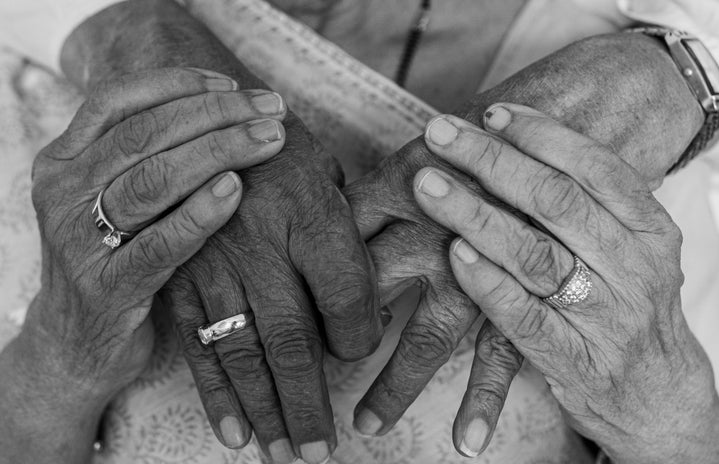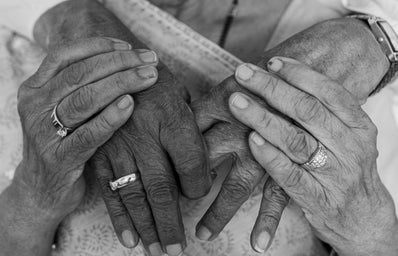Almost twenty years after the last approved drug, a breakthrough has been made in the field of dementia research with the approval of Lecanemab, a drug aimed at halting the decline of memory loss. This is a warmly welcomed development for many families desperate for their loved ones not to succumb to the horrible disease. For me, dementia is a disease extremely close to home and whilst it might be too late for my nanny, I am so thrilled there is hope for others. In this article, I hope to use her story as an example of how dementia diagnosis does not necessarily define an individual. My nanny fought her diagnosis till the very end and never stopped smiling.
My lovely nanny was diagnosed with Alzheimer’s at a relatively young age. However, this did little to stop her from being her usual bubbly, kind and loving self. Some of my most treasured childhood memories involve my grandparents picking me up from school and taking me for ice cream and forcing them to play with my dolls. Despite us living in Ireland and them in Wales, they still made the trip over multiple times a year in order to see us. Whilst it was evident that my nanny wasn’t completely fine- sometimes she’d wander off or ask the same question numerous times, she was able to fully function in her day-to-day life.
Naturally, as the disease progressed, her symptoms got worst. Soon, she became unable to feed herself, wash or walk. My grandad took on the role of her full-time carer, a role that he fulfilled up until her death. He never once complained even though at times, things were extremely difficult. We visited them every Sunday and whilst my nanny was now at a stage where her communication was near enough gone, she still occasionally would laugh at the TV or flash a quick smile. Silly little things that we take for granted on a daily became our way of communication. Although it was difficult to see her in this vegetative state, I took comfort in knowing that she was still aware of our presence and what was going on around her.
Perhaps, the most difficult part of my nanny’s dementia diagnosis and her subsequent decline was memory loss. It is common knowledge that dementia patients tend to remember their earliest memories rather than their latest ones. There were times when I would walk into the room and it would be painfully evident that she would not recognise me or my younger sister. Nevertheless, it is important to not be hurt by this or even angry, as this is just the way the disease is. Hopefully, with the introduction of Lecanemab families will never have to see this side of their loved ones as the drug aims to halt the severity of the disease, meaning it is unlikely that anyone will ever reach the extent my nanny was at.
Nevertheless, whilst dementia diagnosis is hard on family members and the individual itself, it doesn’t necessarily mean doom and gloom from that point onwards. It is certainly hard for me to write about my nanny without being emotional as for most of my life she was consumed by the disease, yet her legacy still lives on. I love hearing my mum and her brothers recount their stories about her when they were growing up, her dementia diagnosis certainly not dampening their image of her as a bubbly, warm and affectionate woman.
In loving memory of my beautiful nanny and my grampy, who looked after her till the very end.


